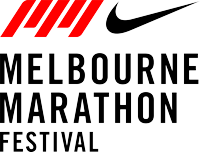During moderate to intense exercise, we can produce up to 2 litres of sweat per hour depending on individual sweat rates and the environmental conditions that surround us. Sweat contains vital electrolytes such as sodium, calcium and magnesium which are essential for numerous bodily functions such as hydration and the regulation or nerve and muscle function.
If fluid and electrolyte losses are not replaced, dehydration arises which is a major cause of fatigue. Dehydration will augment fatigue through elevated cardiovascular strain, thermal strain, increased heart rate and rate of perceived exhaustion (how hard we perceive the exercise to be), muscle lactate production and glycogen utilisation (we deplete carbohydrate stores quicker meaning we have less for the exercise bout). Science in Sport’s GO Hydro Tablets and GO Electrolyte Powder contain vital electrolytes to help prevent dehydration, with the aim to prevent an athletes from losing more than 2% of our body mass through sweat.
Below provides general recommendation on how to adequately maintain good hydration but please note that these are guidelines for general use and do not constitute as specific advice for individuals. We advise that all athletes should always try and find what works for your own specific needs.

Before Exercise
2 hours before exercise, drink 6 to 8ml of fluid per kg of body weight to allow time for absorption and removal of any excess, having sodium before exercise will stimulate thirst and promote the retention of fluids.
During Exercise
Drink regularly, in small amounts with the aim of consuming enough to prevent excessive dehydration (reductions from baseline body weight greater than 2%). Using SiS GO Hydro during exercise will also replace essential electrolytes, though you can consume before or after exercise also (do not consume over 4 tablets per day).
After Exercise
Post exercise you should aim to consume 1.5L for each kg of body weight lost – 1kg of weight lost through exercise, drink 1.5L of water to rehydrate (this is enough to also take into account the fluid that is naturally lost from the body via urine). This does not need to be consumed all at once though, aim for ~500ml immediately post-exercise then regular intervals after that. The easiest way to calculate your fluid loss is to weigh yourself before and after training.
Guidelines taken from American College of Sports Medicine guidelines on fluid intake for exercise (2002) and Position stand: Exercise and fluid replacement (2007).
























